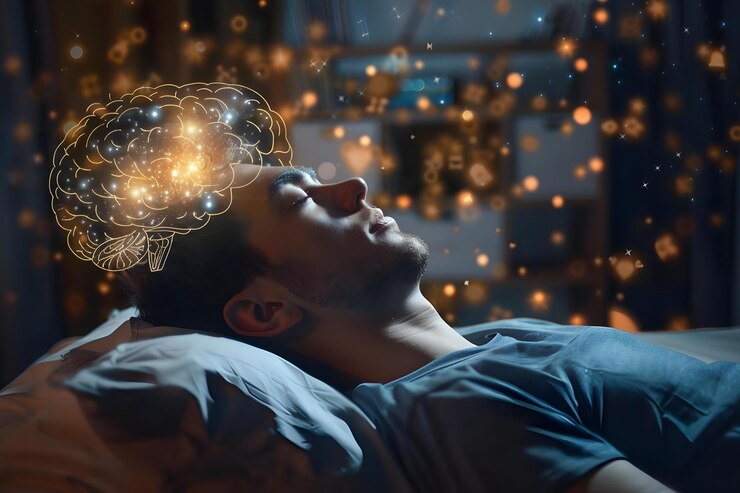Introduction to Melatonin
Melatonin is a hormone naturally produced by the pineal gland in the brain. It plays a crucial role in regulating the sleep-wake cycle, also known as the circadian rhythm. Melatonin levels typically rise in the evening, signaling to the body that it’s time to sleep, and decrease in the morning when it’s time to wake up.
How Melatonin Works
The production of melatonin is influenced by environmental factors such as light and darkness. Exposure to light, especially blue light from screens, can inhibit melatonin production, while darkness signals the body to produce more melatonin, promoting sleep.
Benefits of Melatonin
Improving Sleep Quality
Melatonin supplements are commonly used to improve sleep quality, especially in individuals with insomnia or jet lag. By regulating the sleep-wake cycle, melatonin can help individuals fall asleep faster and stay asleep longer.
Managing Jet Lag
Traveling across different time zones can disrupt the body’s internal clock, leading to jet lag. Melatonin supplements can help reset the circadian rhythm and alleviate symptoms of jet lag, such as fatigue and insomnia.
Enhancing Mood and Mental Health
In addition to its role in sleep regulation, melatonins has been linked to mood regulation and mental health. Some studies suggest that melatonins may have antidepressant and anxiolytic effects, though more research is needed to fully understand its impact on mood disorders.
Melatonin and Health Conditions
Melatonins supplements may also be used to manage certain health conditions, including:
- Insomnia: Melatonins can be an effective treatment for insomnia, especially for individuals who have difficulty falling asleep.
- Seasonal Affective Disorder (SAD): Melatonins may help alleviate symptoms of seasonal depression by regulating the body’s internal clock.
- Shift Work Sleep Disorder: People who work night shifts or irregular hours may benefit from melatonins supplements to help synchronize their sleep-wake cycle with their work schedule.
Sources of Melatonin
Natural Sources
Melatonins is naturally found in foods such as cherries, grapes, and nuts. However, the amount of melatonins in these foods is relatively low, so dietary sources alone may not provide enough to have a significant impact on sleep.
Supplements
Melatonins supplements are available over-the-counter in various forms, including tablets, capsules, and gummies. These supplements are often used to treat sleep disorders and are generally considered safe when taken as directed.
Dosage and Usage
The recommended dosage of melatonins varies depending on the individual and the reason for taking it. It’s important to follow the dosing instructions provided on the supplement packaging and to consult with a healthcare professional if you have any questions or concerns.
Potential Side Effects and Risks
While melatonins is generally safe for short-term use, it can cause side effects in some people, including drowsiness, headaches, and dizziness. It may also interact with certain medications, so it’s important to talk to your doctor before starting melatonins supplements, especially if you’re taking other medications.
Interactions with Medications
Melatonins supplements can interact with certain medications, including blood thinners, immunosuppressants, and antidepressants. It’s important to discuss any medications you’re taking with your doctor before starting melatonins supplements to avoid potential interactions.
Melatonin for Children and Adolescents
While melatonins supplements are commonly used in adults, their safety and efficacy in children and adolescents are less well-studied. Parents should consult with a pediatrician before giving melatonins to children, as dosage and usage guidelines may differ for this population.
Myths and Misconceptions About Melatonin
Addressing Common Misconceptions
- Myth: Melatoni’n is a sedative.
- Fact: Melatoni’n is not a sedative but rather a hormone that regulates the sleep-wake cycle.
Clarifying Facts About Melatonin
- Myth: Melatonins supplements are only for people with sleep disorders.
- Fact: While melatonins supplements are commonly used to treat sleep disorders, they may also have other health benefits, such as managing jet lag and improving mood.
Tips for Better Sleep Naturally
In addition to taking melatonins supplements, there are several lifestyle changes and sleep hygiene practices that can help improve sleep quality, including:
- Establishing a regular sleep schedule
- Creating a relaxing bedtime routine
- Limiting exposure to screens before bedtime
- Avoiding caffeine and alcohol late in the day
Consulting a Healthcare Professional
If you’re experiencing persistent sleep problems or have concerns about melatonins supplements, it’s important to consult with a healthcare professional. They can help diagnose any underlying sleep disorders and recommend appropriate treatment options.
Conclusion
Melatonin is a natural hormone that plays a vital role in regulating the sleep-wake cycle. While melatonins supplements can be effective for improving sleep quality and managing certain health conditions, it’s important to use them responsibly and consult with a healthcare professional if you have any questions or concerns.
FAQs
What is the best time to take melatonin?
The best time to take melatonin supplements is typically 30 minutes to an hour before bedtime.
Can melatonin be used for anxiety?
Some studies suggest that melatonin may have anxiolytic effects, but more research is needed to fully understand its impact on anxiety.
Is melatonin safe for long-term use?
Melatonin supplements are generally considered safe for short-term use, but long-term safety studies are limited.
Can melatonin help with insomnia in the elderly?
Melatonin supplements may be effective for treating insomnia in the elderly, but dosage adjustments may be necessary due to age-related changes in metabolism.
How long does it take for melatonin to work?
Melatonins supplements typically take effect within 30 minutes to an hour after ingestion, though individual response may vary.







